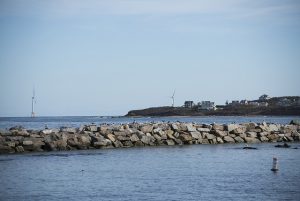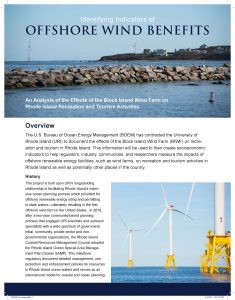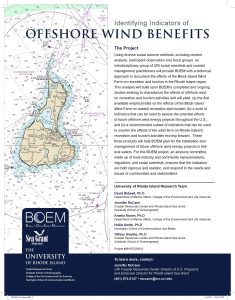
This project has been completed it documents the effects of the Block Island Wind Farm on recreation and tourism in Rhode Island, read the final report here. This information, and subsequent indicators, will help the federal government, through the U.S. Bureau of Ocean Energy Management, work with the public to measure the impacts of offshore renewable energy facilities, such as wind farms, on recreation and tourism activities in Rhode Island and beyond. The University of Rhode Island (URI) Coastal Resources Center, which partners with Rhode Island Sea Grant, facilitated the social science effort focused on understanding how the wind farm impacts island tourism and recreation, and identified indicators — a set of criteria for the island, as well as one that could be applied to similar scenarios in coastal states. Partners included URI’s Department of Marine Affairs/College of the Environment and Life Sciences and the Harrington School of Communications. The project builds on Rhode Island’s increasing ocean planning experience; the wind farm resulted from the 2011 passage of key state regulations, the Rhode Island Ocean Special Area Management Plan (Ocean SAMP), that established the laws for developing offshore in state waters and reflected extensive public participation.




